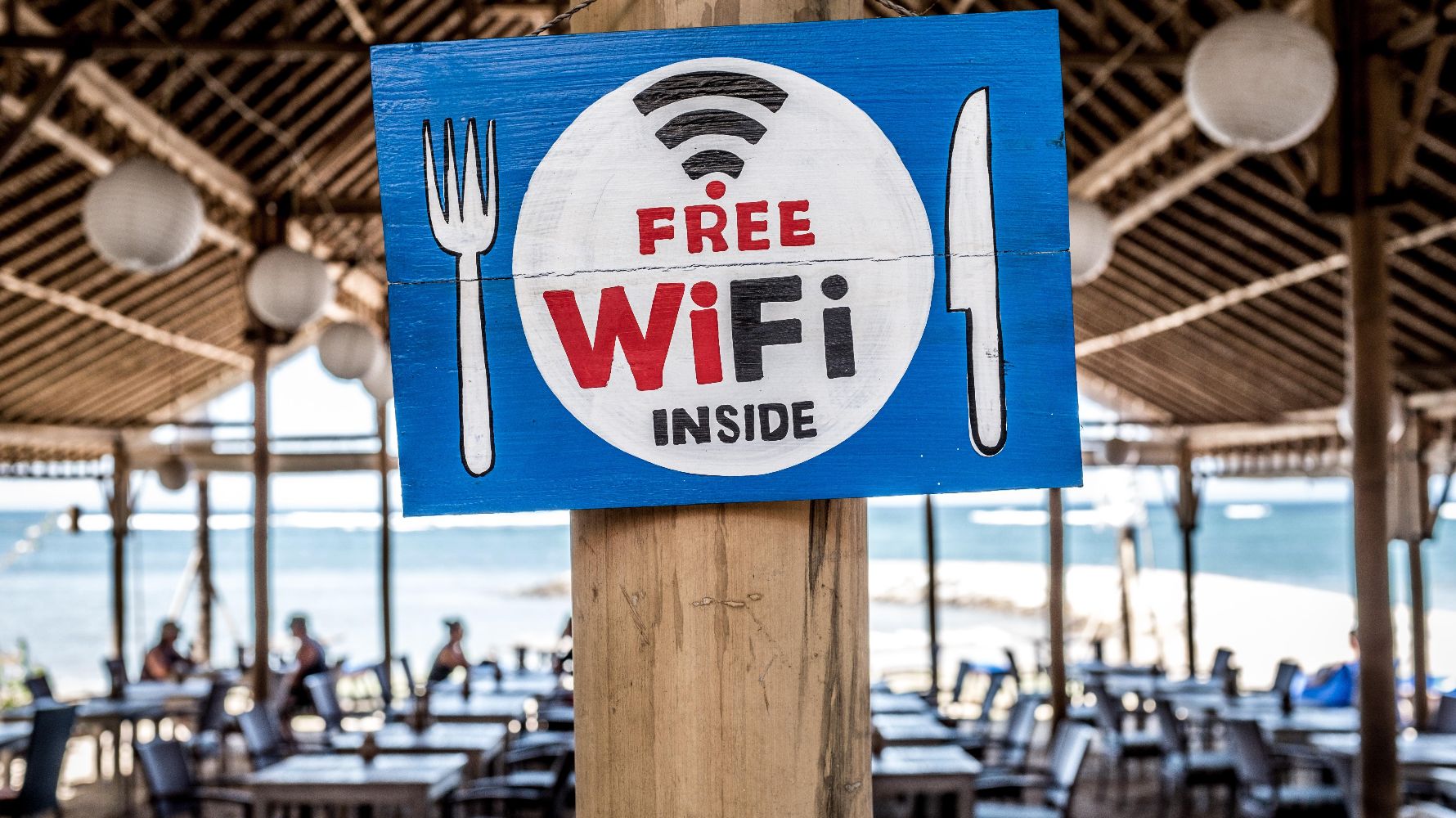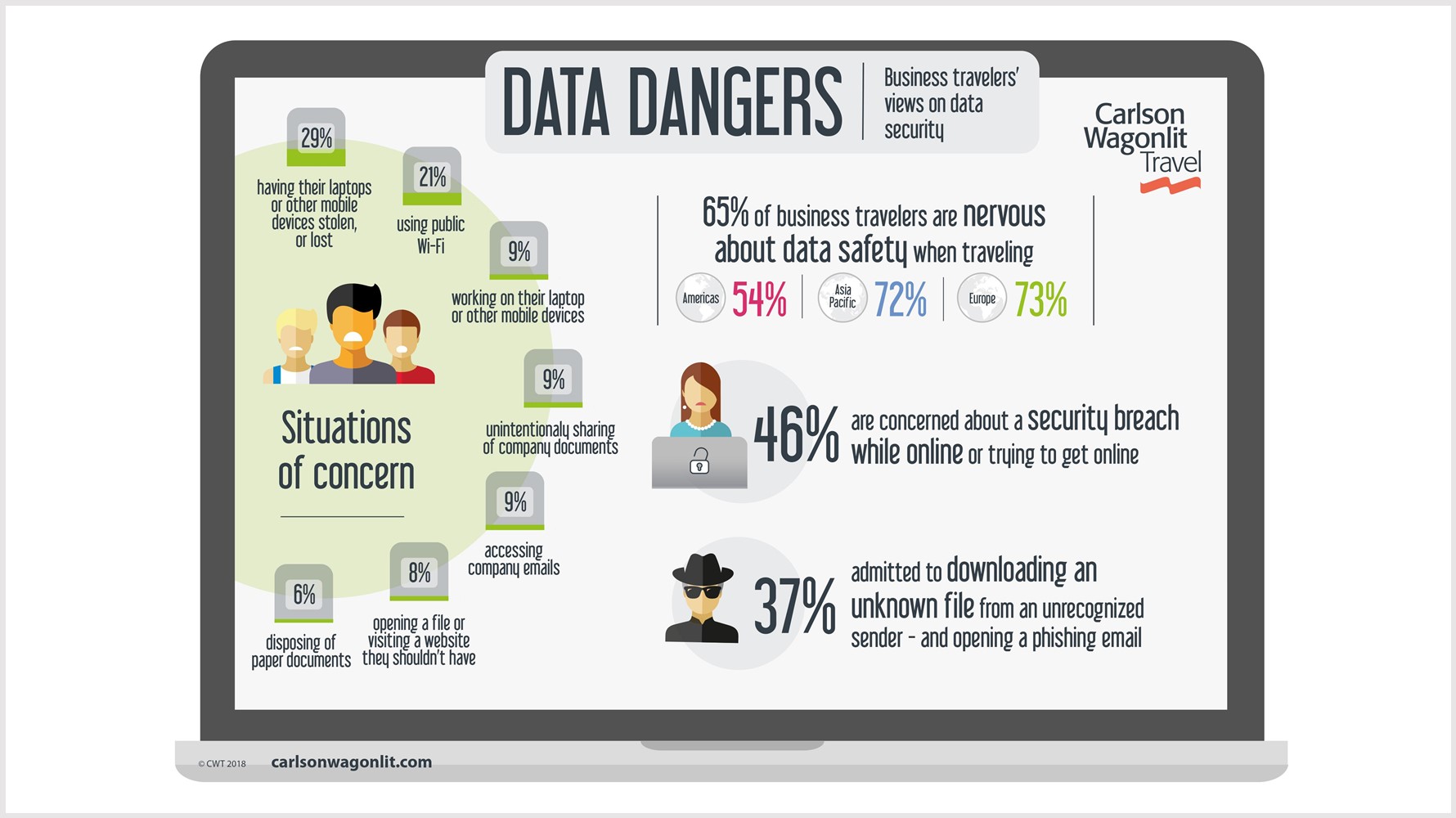Securing our personal data can be a challenge while traveling. Being away from home and the office sometimes forces us to connect to unknown networks. We’re also likely to be working in public places where our information may be at risk. And, as we scuttle from one place to another, we may well lose things.
So it’s no surprise that only 35% of global business travelers feel very confident about data security when traveling for business, according to our research.
The study indicates that 46% are concerned about a security breach when online or trying to get online, 37% have downloaded a file without knowing what it was or who sent it, and the same percentage of people have opened a phishing email.
Here are some useful tips:
- Carefully review your company's information security policy to stay abreast of best practices and know what to do if your information is compromised or suspected to be at risk.
- Keep hold of your electronic devices, telephones, wallets, bank cards, written material, and photocopies of documents. If you're not taking them with you, put them in a safe.
- Avoid exposing confidential information to strange eyes and ears. Use screensavers that prevent outsiders from viewing your computer screen. Also, exercise caution while having conversations with your colleagues. Make sure no one is listening.
- Don’t leave confidential information in hotel rooms or meeting rooms unattended. If you no longer require it, make sure it has been properly disposed of and no one can read it.
- Install access passwords and screen locks on all devices. If possible, also set up some form of encryption.
- Don't enter your credentials into public computers.
- Don't use unknown networks. When connecting to the Internet, use reliable networks and a VPN access.
- Don't plug in accessories that you don’t trust.
- Use secure pages (https).
- Don't access unknown links or download suspicious files.
- Watch where you're charging your cell phone. Plugs can be rigged to access information from mobile devices.
- Don't share your passwords with anyone, or use a password management website.




